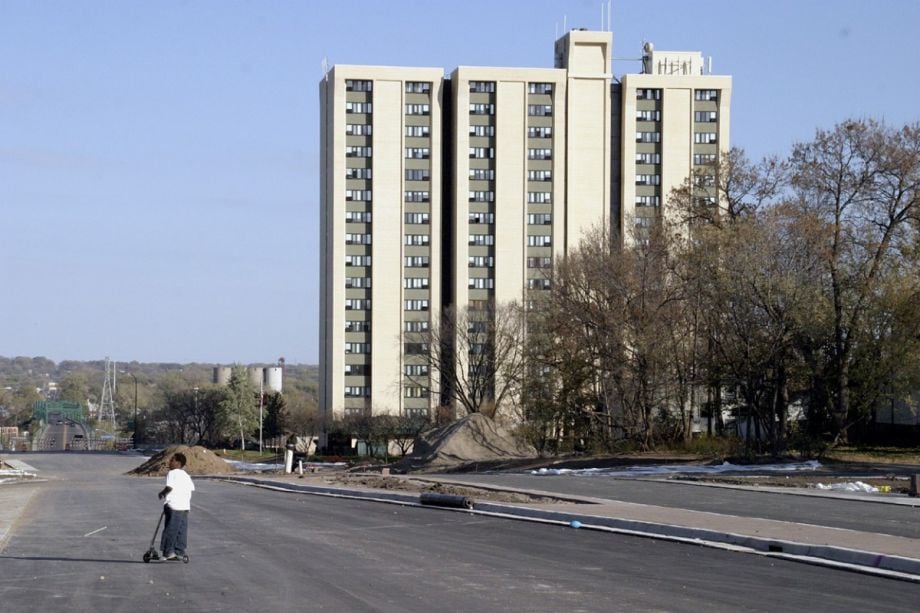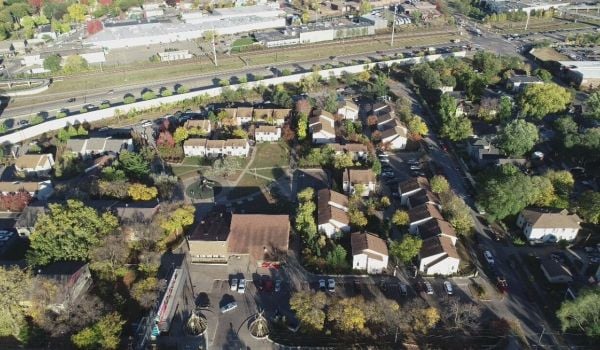On Dec. 7, Minneapolis City Council unanimously passed a resolution that established “guiding principles in support of investments in public housing and the people who live there.” The resolution, supported by Mayor Jacob Frey, was co-written by Councilmember Abdi Warsame of Ward 6 and Council Vice President Andrea Jenkins of Ward 8 — the first and only openly transgender black person in U.S. public office. However, Defend Glendale and Public Housing— a local grassroots advocacy group — remains skeptical, viewing the resolution as one step in the process of privatizing public housing.
The impetus for the resolution goes back to August, when the Minneapolis Public Housing Authority (MPHA) applied for federal funding through the Department of Housing and Urban Development’s (HUD) Rental Assistance Demonstration (RAD) program to repair and renovate its Elliot Twins building. The RAD program works by converting public housing units into units owned partly or entirely by a private developer, which expands access to private financing for repairs and renovations. But the conversions — which reached 100,000 units nationwide in November — have some renters fearful that they will lose their housing.
The uncertainty, coupled with the badly needed repairs and renovations, inspired Warsame and Jenkins to act.
“The reality is that the work does have to get done. We want people to be able to afford housing and have it be safe and livable housing too. These improvements do need to get done,” Jenkins says. She adds, however, that she and Warsame “wanted to offer a resolution that would preserve people’s right to return to their housing … if they have to leave during renovations,” noting that other motivations were to “ensure that tenants’ rights are adhered to and hold MPHA accountable.”
The resolution lays out several commitments from “preserving quality homes for the current and future residents of public housing” to respecting the rights of public housing residents. It also shines a spotlight on the scale of public housing in Minneapolis, stating that the Minneapolis Public Housing Authority “owns and operates public housing that provides homes to more than 25,000 low income residents” across the city.
On the back of the resolution’s passing, the Minneapolis Public Housing Authority released a statement saying that the resolution highlights the importance of public housing as well as the damage left in the wake of “decades of federal underfunding.” The statement also included a comment from Warsame who said that the resolution is focused on individuals, “the actual people who live in Minneapolis Public Housing … Senior citizens, immigrants, people with disabilities — the most vulnerable members of our society. They deserve as much protection as possible. Most of these protections are already there at the federal level. But we wanted to make sure they are articulated in a way that is simple, direct, and comes from the city council.”
Jenkins says that the resolution was important to her because “we must preserve affordable housing in our community. We cannot afford to lose any of our deeply affordable housing which public housing provides.” The Metropolitan Council — a planning and policy-making body that serves the Twin Cities metropolitan region — defines housing as affordable when it costs a low- or moderate-income family 30-40 percent of its monthly income or less.
According to the Minnesota Housing Partnership’s 2017 State of the State’s Housing report, “of the 87,460 renter households in Minneapolis, 42 percent are ‘cost-burdened,’ meaning they are paying more than 30 percent of their income on housing. For renters with incomes less than $20,000 per year, cost burden rises to 84 percent.” In St. Paul, 50 percent of renter households are cost-burdened, including 83 percent of renter households with incomes below $20,000 per year.
Despite its pro-renter wording, staunch critics of the Minneapolis Public Housing Authority maintain that the resolution is actually unfavorable to public housing residents.
“The resolution is an endorsement of MPHA’s privatizing plan that will dismantle public housing and displace thousands of people out of Minneapolis,” chiefly people of color, says Ladan Yusuf, Minneapolis resident and the campaign organizer of Defend Glendale. Yusuf expressed dismay that “the two black people we really counted on [Warsame and Jenkins] now want this.”
Yusuf and Defend Glendale’s charges come on the heels of the city recently grabbing headlines by approving a plan to eliminate single-family residential zoning — which was created to keep black people out of certain neighborhoods in the first place.
Yusuf sees the city, the mayor, and the housing authority working together to ultimately kick people of color out of the city by reducing public housing, pointing to Congresswoman Maxine Waters’ (D-CA) March statement on the RAD program.
“I have long expressed concerns that the conversion of public housing, under RAD, will risk the long-term affordability of [public housing],” Waters said in March.
Waters also pointed to a Government Accountability Office report that analyzed the RAD program, finding that “despite RAD’s potential to have serious, negative impacts on tenants (such as changes in rent or relocation), HUD is failing to adequately track these impacts and monitor potential violations of resident rights under relevant statutes and HUD policies.” The report also called into question RAD’s ability to ensure long-term affordable housing and concludes that RAD actually puts “increased pressure on existing public resources that are already oversubscribed.”
The exact future of Minneapolis’ relationship to RAD is currently unknown as the Department of Housing and Urban Development has yet to approve or deny the city’s application. If approved, the Minneapolis Public Housing Authority’s Jeff Horwich told the Minneapolis Star Tribune that “the local housing authority will begin to assemble the financing plan necessary to renovate the Elliot Twins.”

Cinnamon Janzer is a freelance journalist based in Minneapolis. Her work has appeared in National Geographic, U.S. News & World Report, Rewire.news, and more. She holds an MA in Social Design, with a specialization in intervention design, from the Maryland Institute College of Art and a BA in Cultural Anthropology and Fine Art from the University of Minnesota, Twin Cities.
Follow Cinnamon .(JavaScript must be enabled to view this email address)
















